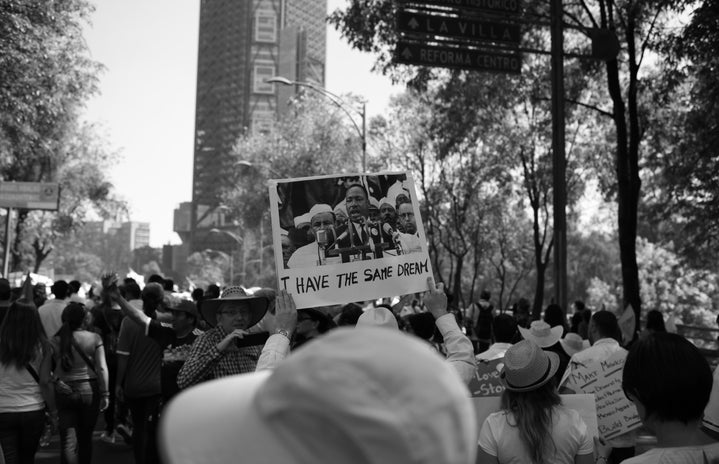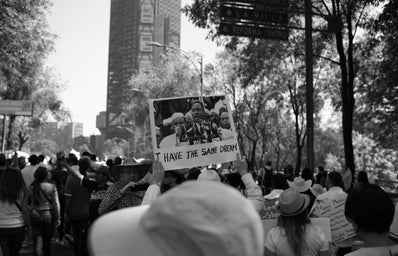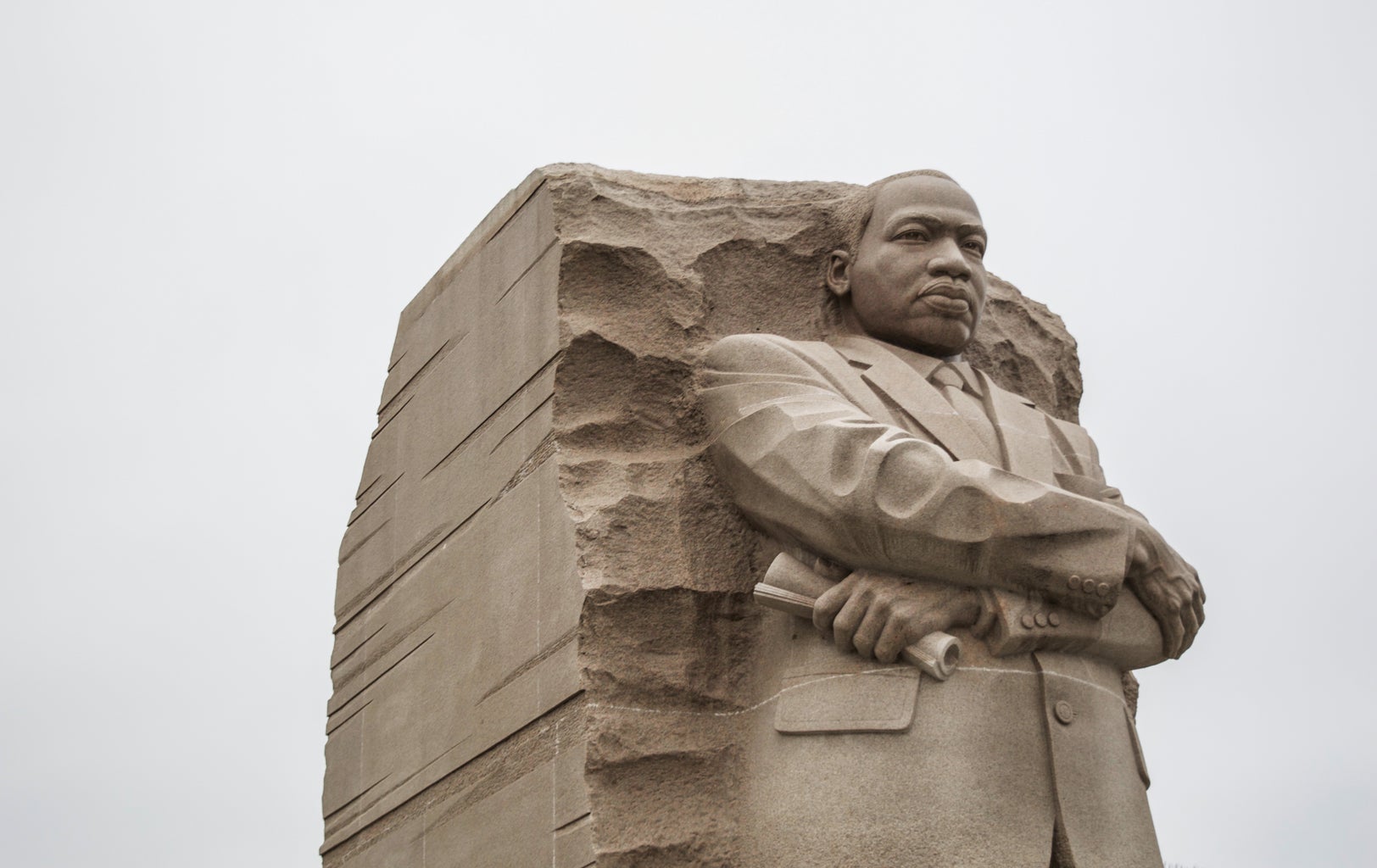With Feb. being Black History Month, it is time to finally address how the legacy of Martin Luther King Jr. has been rewritten to make white people comfortable.
There is no doubt that Martin Luther King Jr. was essential to the Civil Rights Movement. Leading The Montgomery Bus Boycott and The March on Washington, his courageous leadership influenced the nation and led to The Civil Rights Act of 1964 and The Voting Rights Act of 1965. While Martin Luther King Junior’s legacy should be remembered and celebrated, his accurate and complete image is often neglected by both the media and the country.
Martin Luther King Jr. is an easy activist for white people to admire. From a young age, we learn that King was entirely peaceful and opposed any form of more violent protest. One of his most quoted lines, “Darkness cannot drive out darkness; only light can do that” has been thrown around by schools and media sources for years.
However, King’s speeches have been cherry-picked to exclude his more radical views and means of achieving equality. In his Letter From A Birmingham Jail, he declared that “we know through painful experience that freedom is never voluntarily given by the oppressor; it must be demanded by the oppressed.” King was also a considerable believer in economic equality and stated “The evils of capitalism are as real as the evils of militarism and racism.” However, these quotes are infrequently taught, rarely shared in the media, and ignored by those willing to acknowledge racism but unwilling to support real systemic change.
King’s quotes have also been utilized to delegitimize other more radical activists and ideas. While Martin Luther King Jr. is often the focal point for Black Civil Rights, other meaningful Black activists and activist groups such as Malcolm X, The Black Panthers, and W. E. B. Du Bois are brushed off. These groups were viewed as more of a threat to white power and peace than King was. Even in modern times, we see activists compared to Martin Luther King Jr. During the peak of the Black Lives Matter Movement when some protests had aspects of violence, people constantly responded by quoting King. It is absurd to expect all protests to be entirely peaceful in the reaction to years of oppression, systemic racism, and the horrific murders of Black Americans by police officers. It is also ignorant and blatantly wrong to quote King in a way that makes it seem as if King would condemn these protests. King said he could not condemn riots without condemning the intolerable conditions in society. He understood riots and explained that “[intolerable] conditions are the things that cause individuals to feel that they have no other alternative than to engage in violent rebellions to get attention.” When Black Americans have been fighting for equal rights for hundreds of years and are still experiencing oppression, it is understandable for there to be some violence in protests. After all, King believed that “a riot is the language of the unheard.”
This Black History Month, let’s start hearing all of what Martin Luther King Jr. preached. Additionally, we must educate ourselves on other influential Black activists, both past and present. If you acknowledge the persistent issue of racism in America, join the cause to create authentic and meaningful change.
In the words of Martin Luther King Jr., “In the end, we will remember not the words of our enemies, but the silence of our friends.”



